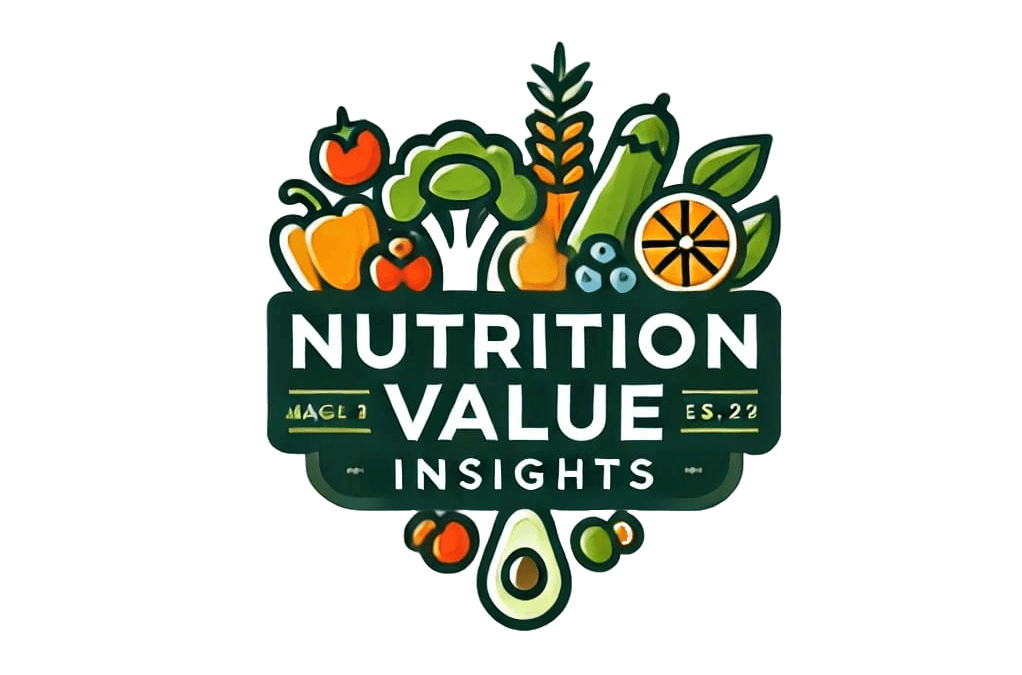Grilled Cheese Nutrition Info: Calories, Fat, Protein & More
Grilled cheese sandwiches are a favorite comfort food. But have you ever thought about their nutritional details? This guide will explore everything from calories to macronutrients in grilled cheese. Whether you’re watching your calories or just curious, you’ll get all the info you need.

Table of Contents
Understanding Basic Grilled Cheese Nutrition Facts
Grilled cheese sandwiches are a classic comfort food. Knowing the nutrition facts is important. A typical serving size is one sandwich, with about 550 calories. You can enjoy this treat while making smart choices.
Serving Size and Portion Control
A standard grilled cheese recipe uses 2 to 4 slices of cheese. It takes 15 minutes to cook and uses 2 tablespoons of butter. The best skillet size is 10 inches, and popular cheeses are American, cheddar, or Jack. Remember, one sandwich is a big part of your daily calories and nutrients.
Daily Value Percentages Explained
The nutrition label on a grilled cheese sandwich shows Daily Value (DV) percentages. For example, one sandwich has 45% of the DV for total fat and 85% for saturated fat. These numbers help you see how the sandwich fits into your diet.
Caloric Density Overview
Grilled cheese sandwiches are high in calories, with about 596 calories per serving. This is because of the bread, cheese, and butter. It’s key to watch portion sizes and eat grilled cheese as part of a balanced diet.
Calorie Content and Breakdown
A traditional grilled cheese sandwich is a cherished comfort food. But have you ever wondered about its calorie content and nutrient breakdown? Let’s dive into the details.
On average, a grilled cheese sandwich contains about 550 calories. The calorie breakdown is as follows:
- 57% from fat (313.5 calories)
- 28% from carbohydrates (154 calories)
- 15% from protein (82.5 calories)
The individual components that contribute to the total calorie count include:
| Ingredient | Calories |
|---|---|
| Sourdough bread | 300 calories |
| Whipped butter | 220 calories |
| Cheddar and Monterey Jack cheese | 222 calories |
So, whether you’re enjoying a classic grilled cheese or experimenting with different ingredients, it’s important to be mindful of the grilled cheese calories and grilled cheese nutrition facts. This helps you make informed choices about your dietary intake.
“A grilled cheese sandwich is a simple pleasure, but it’s important to understand its nutritional profile to make the best choices for your health.”
Fat Content and Types in Grilled Cheese
Grilled cheese sandwiches have a lot of fat. A typical one has 35g of total fat, with 17g of saturated fat. This is 45% of the daily fat limit and 85% of the saturated fat limit.
The saturated fat in grilled cheese can affect heart health. But, there’s a plus – grilled cheese has 0g of trans fat. This means it’s safe from the harmful effects of trans fats.
Butter vs Mayonnaise: Choosing Healthier Options
The fat you use in grilled cheese matters a lot. Butter is classic and adds a nutty flavor when cooked. But, it can burn quickly.
Mayonnaise is a good alternative. It’s creamy and doesn’t burn easily. Light mayonnaise is even healthier because it has more water.
For a healthier grilled cheese, try mixing mayonnaise and butter. This mix gives a crispy outside without the burnt taste. It still tastes rich and satisfying.
Knowing about the fat in grilled cheese helps you enjoy it better. You can choose butter, mayonnaise, or a mix. Just remember to eat it in moderation as part of a healthy diet.
Protein and Dairy Benefits
Grilled cheese is more than just a tasty treat. It’s a powerhouse of grilled cheese protein. One serving contains approximately 21 grams of protein. This is roughly 42% of what you need daily.
The cheese in your grilled cheese is a complete protein. It contains all the amino acids your body needs, making it an essential part of a balanced diet.
But there’s more to grilled cheese than just protein. The dairy in it, like cheese and milk, is full of grilled cheese benefits. For example, a serving has about 480 milligrams of calcium. This is 37% of your daily calcium needs.
Cheese is packed with nutrients. It has high-quality protein, healthy fats, and important vitamins and minerals. Different cheeses have different amounts of protein. Cottage cheese has 14 grams per half-cup, while Cheddar has 6.5 grams per ounce.
Eating grilled cheese can be good for you. It helps with muscle maintenance, bone health, and a balanced diet. Just remember to watch your portion sizes and choose lower-fat cheese options.

Carbohydrate Composition
Grilled cheese nutrition is key, especially when it comes to carbs. A typical grilled cheese has 39g of carbohydrates, which is 14% of what we need daily. The majority of these carbs come from the bread.
Fiber Content: 2g
The sandwich also has 2g of dietary fiber, which is 7% of our daily value. Fiber helps with digestion and keeps us full.
Sugar Content Analysis
The sugar in a grilled cheese is low, from 0g to 2.5g. This depends on the recipe and ingredients. Most carbs are from the bread, with little added sugar.
Cheeses like Gouda, Brie, and Camembert have less than 1g of carbs per ounce. They’re great for those who want to enjoy grilled cheese without too many carbs.
“Grilled cheese sandwiches made with low-carb cheeses can be a delicious and nutritious option, providing a balance of protein, healthy fats, and minimal carbohydrates.”
Looking to control carbs or just enjoy a comforting grilled cheese? Knowing the grilled cheese carbs and grilled cheese nutrition breakdown helps you make better choices. This way, you can enjoy this classic dish without guilt.
Sodium and Mineral Content
Grilled cheese sandwiches have a lot of sodium, about 1910mg per serving. This is 83% of what you need daily. But, they also have important minerals like calcium and iron.
One serving of grilled cheese has 480mg of calcium. This is 37% of what you should eat each day. It’s great for your bones and health. Grilled cheese also has 0.9-1.6mg of iron, which is 5-9% of your daily need.
But, grilled cheese doesn’t have much potassium. It only has 60mg, or 1% of what you need. Potassium helps keep your blood pressure right, muscles working, and nerves talking.
| Mineral | Amount per Serving | Percentage of Daily Value |
|---|---|---|
| Sodium | 1910mg | 83% |
| Calcium | 480mg | 37% |
| Iron | 0.9-1.6mg | 5-9% |
| Potassium | 60mg | 1% |
Even though grilled cheese has a lot of sodium, it’s also full of good minerals. It’s especially good for calcium and iron. Eating it in small amounts and with other healthy foods is key to staying healthy.
Common Allergens and Dietary Considerations
When looking for healthy grilled cheese options, knowing about common allergens and dietary restrictions is key. Grilled cheese sandwiches often contain milk, wheat, and soy, which are common allergens. The bread used in these sandwiches also has gluten, making them not good for those who follow a gluten-free diet.
Major Allergens Present
- Milk (from the cheese)
- Wheat (from the bread)
- Soy (potentially from the cooking oils or other ingredients)
Gluten Content Information
The grilled cheese sandwich is not gluten-free because it uses traditional wheat-based bread. People with celiac disease or gluten sensitivity should choose gluten-free bread. Or, they can look for other healthy grilled cheese options without gluten.
Dietary Restrictions
Grilled cheese sandwiches may not fit the dietary needs of some people. Vegans and those with lactose intolerance need to find dairy-free and plant-based alternatives. This way, they can enjoy a grilled cheese that fits their dietary requirements.
| Dietary Restriction | Grilled Cheese Suitability |
|---|---|
| Vegan | Not suitable without dairy-free cheese and bread |
| Lactose Intolerance | Not suitable without lactose-free cheese |
| Gluten-Free | Not suitable with traditional wheat-based bread |
Being aware of common allergens and dietary considerations helps you choose the right healthy grilled cheese options. This way, you can meet your individual needs and preferences.
Nutritional Comparison with Other Sandwiches
Understanding the grilled cheese nutrition facts is key. This classic sandwich is often higher in calories and fat than others. Yet, it remains a comforting and satisfying choice.
A typical turkey sandwich has fewer calories and less fat than grilled cheese. The USDA shows a ham, cheese, and spread sandwich has 361 calories and 16.7g of fat. On the other hand, a grilled cheese on white bread with reduced-fat cheddar has 387.44 calories and 21.18g of fat.
But, grilled cheese is a good source of calcium due to its cheese. It offers 448.92mg of calcium, which is great for bone health. Other sandwiches, like turkey or peanut butter and jelly, may not have as much calcium.
| Sandwich Type | Calories | Fat (g) | Protein (g) | Calcium (mg) |
|---|---|---|---|---|
| Grilled Cheese | 387.44 | 21.18 | 17.23 | 448.92 |
| Turkey | 361 | 16.7 | 19.3 | N/A |
| Peanut Butter and Jelly | 350-500 | N/A | N/A | N/A |
To make a healthier grilled cheese or choose other healthy grilled cheese options, pay attention to ingredients and portion sizes. Smart choices allow you to enjoy grilled cheese while keeping your nutrition and calorie intake in check.

Essential Vitamins and Minerals
Grilled cheese sandwiches might not seem like a healthy choice at first. But, they do offer some important vitamins and minerals. Let’s explore the nutritional benefits of this classic comfort food.
Calcium Benefits
Grilled cheese is a good source of calcium. A single serving can give you up to 37% of your daily calcium needs. Calcium is key for strong bones and teeth, and it also helps your heart and muscles.
Iron Content
Grilled cheese also has iron, about 5-9% of your daily value. Iron is essential for carrying oxygen in your body and keeping your red blood cells healthy.
Vitamin Profile
The vitamins in grilled cheese depend on the bread and cheese you use. It’s not a big source of vitamins A, C, or D. But, it might have some vitamin B6 and B12.
While grilled cheese isn’t the most nutritious food, it can still add to your vitamin and mineral intake. Eating it as part of a balanced diet is key. Adding other nutrient-rich foods to your meals can help you get all the nutrients your body needs.
| Nutrient | Amount per Serving | % Daily Value |
|---|---|---|
| Calories | 334 | – |
| Vitamin A | 142 mcg | 16% |
| Vitamin B6 | 0.21 mg | 10% |
| Vitamin B12 | 0.50 mcg | 21% |
| Folate | 82 mcg | 21% |
| Vitamin C | 0 mg | 0% |
| Vitamin D | 0.30 mcg | 2% |
| Calcium | 387 mg | 37% |
| Iron | 1.78 mg | 9% |
As shown, grilled cheese has a good amount of calcium and some other important vitamins and minerals. It’s not the most nutritious food, but it can be part of a healthy diet when eaten in moderation.
Conclusion
Grilled cheese sandwiches can be part of a balanced diet if eaten in moderation. Knowing the nutritional facts helps you make better choices. This way, you can enjoy this classic comfort food without guilt.
Try using whole wheat or sourdough bread for a healthier option. Also, choose different cheeses to lower fat and calorie intake. Adding fresh fruits or veggies to your grilled cheese can make it even healthier.
Grilled cheese can be a tasty treat if you keep the grilled cheese nutrition facts in mind. By making a few tweaks, you can make it a healthy grilled cheese choice. With a bit of creativity, you can enjoy this beloved sandwich while staying healthy.
FAQ
What is the calorie content of a classic grilled cheese sandwich?
A classic grilled cheese sandwich has about 550 calories per serving.
What is the calorie breakdown of a grilled cheese sandwich?
The calories come from fat (57%), carbs (28%), and protein (15%).
What are the nutrition facts for a standard grilled cheese sandwich serving?
A standard serving has 35g of fat, 39g of carbs, and 21g of protein.
How much of the daily value does a grilled cheese sandwich provide?
One grilled cheese sandwich gives you 45% of the daily fat and 85% of saturated fat.
What are the main sources of calories in a grilled cheese sandwich?
The main calories come from sourdough bread (300 calories), whipped butter (220 calories), and cheese (222 calories).
How much saturated fat is in a grilled cheese sandwich?
A grilled cheese sandwich has 17g of saturated fat, which is 85% of the daily value.
Is a grilled cheese sandwich a good source of protein?
Yes, it has about 21g of protein, which is 42% of the daily value.
How much sodium is in a grilled cheese sandwich?
A typical grilled cheese sandwich has about 1910mg of sodium, which is 83% of the daily value.
What allergens are present in a grilled cheese sandwich?
Grilled cheese sandwiches have common allergens like milk, wheat, and soy. They also have gluten from the bread.
How does the nutrition of a grilled cheese sandwich compare to other sandwiches?
Grilled cheese is higher in calories and fat than other sandwiches. But it has more calcium because of the cheese.
DID OUR INFORMATION HELP YOU ?
There are no reviews yet. Be the first one to write one.
